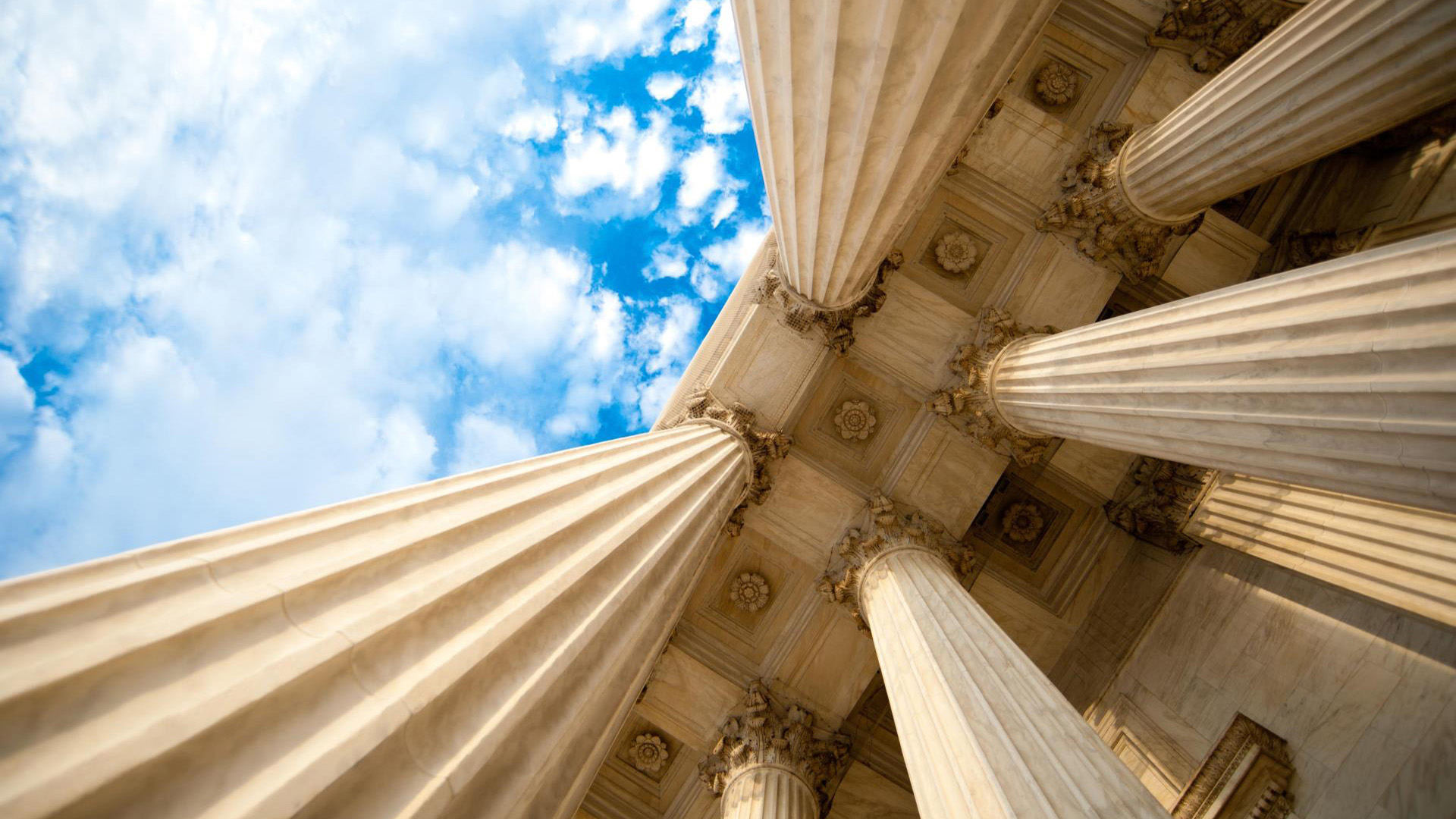The Copyright Act provides that a copyright owner must bring an infringement claim within three years of its accrual. See 17 U. S. C. §507(b). In Warner Chappell Music, Inc., et al., Petitioners v. Sherman Nealy, et al., 601 U.S. ___ (2024) the United States Supreme Court considered whether a copyright plaintiff could recover damages for acts of infringement that occurred more than three years prior to filing of suit. In its analysis the Court’s majority assumed, without deciding, that a claim for copyright infringement is timely filed if the claim is brought within three years of when the plaintiff discovered the infringement, no matter when the infringement actually happened.
With the assumption that the discovery rule applied to the statute of limitations, the majority turned to the question of whether the Copyright Act itself placed any temporal limitation on the damages a copyright owner could seek to recover for a timely filed cause of action. In other words, if a claim was timely filed within the statutory three year window for doing so, was the copyright plaintiff limited to recovering damages to the three year window before filing suit, or could the plaintiff seek damages for infringements that occurred years prior to the accrual of the plaintiff’s claim.
In 1983, Sherman Nealy and Tony Butler formed Music Specialist, Inc. (Music Specialist) and worked together to record and release an album and several singles. Their collaboration dissolved shortly thereafter and Nealy went to prison for drug related offenses. While Nealy was incarcerated, Butler entered into an agreement with Warner Chappell Music, Inc. (Warner Chappell) to license works from the Music Specialist catalog. One Music Specialist work (Jam the Box) was used to create Flo Rida’s hit song “In the Ayer,” which sold millions of copies and reached No. 9 on the Billboard chart. Other Music Specialist songs were used in connection with recordings by the Black Eyed Peas and Kid Sister. Nealy was not aware of Butler’s licensing activity with Warner Chappell.
In 2018, Nealy sued Warner Chappell seeking damages and profits for copyright infringement. Nealy alleged that he held the copyrights to Music Specialist’s songs and that Warner Chappell’s licensing activities infringed his rights. The infringing activity Nealy challenged dated back to 2008, 10 years before Nealy filed suit. Nealy contended that he did not learn of Warner Chappell’s infringing activity until 2016—after he got out of prison and less than three years before he sued Warner Chappell.
For Nealy’s claim to proceed Nealy was first required to show that his claim was timely, meaning it was filed within three years after the claim accrued as required by the Copyright Act. Nealy contended that his infringement claims were timely because an infringement claim accrues when “the plaintiff discovers, or with due diligence should have discovered ” the act of infringement, allegations consistent with the Eleventh Circuit’s “discovery rule” for accrual of a copyright infringement claim.
Not all courts have adopted the “discovery rule.” Instead, those courts have held that the a copyright claim “accrue[s]” when “an infringing act occurs” regardless of the copyright owner’s knowledge of the same. Petrella v. Metro-Goldwyn-Mayer, Inc., 572 U. S. 663, 670 (2014). Under this competing claim accrual approach a plaintiff can seek redress only for infringements occurring only three years from the time they filed suit. If that competing rule governed Nealy’s case, many of Nealy’s claims would have been untimely because Warner Chappell’s alleged infringements occurred as much as 10 years earlier than the date Nealy filed suit.
Warner Chappell did not challenge the discovery rule before the district court, choosing instead to focus on a different timing objection. Warner Chappell accepted that the discovery rule governed the timeliness of Nealy’s claims. Instead, Warner Chappell argued that even if Nealy could sue under the discovery rule for infringements going back 10 years, he could recover damages or profits for only those infringements occurring in the three years prior to filing suit. The district court agreed holding that even when claims for old infringements are timely, monetary relief is “limited” to “the three years prior to the filing” of the action.
The Court of Appeals for the Eleventh Circuit reversed holding that the three-year statute of limitations for filing a copyright infringement claim does not impose a three-years damages bar on a timely filed claim. In doing so, the Eleventh Circuit chose to align its circuit with the Ninth Circuit rather than the Second Circuit, holding that a plaintiff with a timely claim under the discovery rule may obtain “retrospective relief for [an] infringement” even if it “occurr[ed] more than three years before the lawsuit’s filing.” The Second Circuit, in contrast, does not recognize the discovery rule and bars any claims which accrued more than three years prior to the date the infringement suit commenced. The Supreme Court granted certiorari, but not for the question Warner Chappell had presented.
Rather, the question for which the Court granted certiorari was “[w]hether, under the discovery accrual rule applied by the circuit courts,” a copyright plaintiff “can recover damages for acts that allegedly occurred more than three years before the filing of a lawsuit.” In substituting this question, the Court incorporated an assumption that the discovery rule governs the timeliness of copyright claims. The Court acknowledged that it had never decided whether the discovery rule governs the timeliness of copyright claims and declined to do so in the instant case as that issue was not properly presented before the Court.
Turning to the narrow issue presented, the Court concluded that the text of the Copyright Act itself answers that issue in favor of copyright plaintiffs. The Copyright Act’s statute of limitations provides in full: “No civil action shall be maintained under the provisions of this title unless it is commenced within three years after the claim accrued.” 17 U.S.C. §507(b). The clock set by this statutory provision is singular in nature, meaning it relates only to the timing of the filing of a claim and does not on its face place any limitation on the amount of damages to be recovered or the time period for which damages can be recovered. The Court noted that if there were any temporal limit on the time period for damages that limit must appear in the remedial provisions of the Copyright Act and no such limit is found there. As a result, if a claim is timely filed under the Copyright Act, the copyright owner can seek damages without any time limit on the amount of monetary recovery.
In a dissenting opinion, Justices Gorsuch, Thomas and Alito contend that the discovery rule has no role under the Copyright Act and that all claims which accrued outside of the three year statute of limitations period are barred. Because Sherman Nealy filed suit more than three years after many of Warner Chappell’s alleged infringing acts most, if not all, of his claims are untimely. The dissenting justices would have dismissed the petition as improvidently granted and awaited a case which squarely presented the question about the application of the discovery rule to the Copyright Act’s statute of limitations.
The decision has significant implications on the measure of damages available to copyright owners. Copyright owners are now in a position to seek damages for infringements occurring many years prior to the commencement of the action so long as the action is “timely” within the meaning of the Copyright Act. Whether or not a copyright owner is “timely” in seeking redress for their claims remains uncertain with the circuits split as to whether or not the action accrues from the time the claim is discovered or when the infringement activity commenced. Three Supreme Court justices have signaled in their dissent, however, that they will advocate for a strict interpretation of the Copyright Act’s statute of limitations barring actions for infringements occurring more than three years before the action was commenced regardless of when the copyright owner became aware of the infringing activity.



